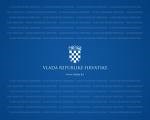- Published: 05.12.2008.
Draft 2009 budget - Revenues estimated at HRK 124 , expenditures at 128,9 bln
The draft budget for 2009 envisages revenues in the amount of slightly more than HRK 124 billion, while spending is projected at HRK 128.9 billion, Prime Minister Ivo Sanader said on Friday at a session of the government which sent the draft budget to parliament for consideration.
"The government has proposed a budget it believes can be executed, because we still don't know what developments on the global financial market will be like, especially in EU countries," Sanader said.
He said that next year's GDP growth was projected at two percent and that inflation was expected to slow down to 3.5 percent.
"Although their scope will be reduced, public infrastructure projects will continue because economic growth is not possible without them," Sanader said, adding that the government would take care of the economic sector, and small and medium businesses, as well as big businesses.
Finance Minister Ivan Suker said that the projected 2009 budgetary revenues amounting to HRK 124.2 billion were 5.2 percent higher than this year's.
Next year's budget includes funds for an increase in salaries of civil servants and state employees, which will cost an additional HRK 1.8 billion (this refers to a six percent increase in salaries of all civil servants and state employees, and an additional two percent increase in salaries of workers in the education sector as of mid 2009).
Suker also presented data on some other budgetary items, including a 4.1 percent increase in funds for pensions, which are to amount to HRK 34.1 billion, and funds for the health reform in the amount of HRK 3.5 billion. The total cost of the health reform is estimated at HRK 4.6 billion.
Material costs are expected to grow by six percent, which Suker said was due to costs of the fight against organised crime and corruption, and domestic contributions to projects which are to be financed from EU pre-accession funds.
Funds for the most vulnerable social groups will be increased by HRK 182 million, and PM Sanader announced that maternity allowances would be increased as well.
Suker said that 2009 would be a difficult year, "and we will have to fight hard for a two-percent economic growth and to keep the existing number of jobs."
Suker said that leading economic powers were planning their economic growth in 2009 to be at the same level as this year's, while some countries such as Ireland, Estonia and Latvia were projecting a growth rate lower than this year's.
Suker warned about what he called "floating mines around the budget" - the health reform and the shipbuilding industry.
"We still don't know how much the shipbuilding sector will cost us," the minister said.
As for the health sector, Suker said that the sector's current liabilities amounted to HRK 3.5 billion, which he described as "a covert deficit".
"That covert deficit must no longer exist after 1 January 2010," he said.
An additional threat to the 2009 budget is the need to re-finance the existing budgetary liabilities in the amount of EUR 1.1 billion and ensure funds to finance the deficit, Suker said.
One of the priority goals is the rescheduling, in cooperation with commercial banks in the country and abroad, of EUR 8.4 billion of loans due to be paid by the business sector and the financing of an estimated EUR 4 billion of the current balance of payments deficit, Suker said.
The deficit of the 2009 government budget is projected at HRK 4.3 billion or 1.3 percent of GDP, Suker said later in the afternoon.
If an estimated deficit of extra-budgetary users of 0.3 percent is added to that, the consolidated general government deficit is expected to be 1.6 percent of GDP, Suker said.
The government today instructed the Pension Insurance Agency to report to it before the next government session at the latest about the situation in the agency's capital fund and the possibility of paying pensioners Christmas bonuses.
HOUSEHOLD GAS PRICES TO INCREASE 20 PER CENT AS OF NEXT YEAR
ZAGREB, Dec 5 (Hina) - The price of natural gas for households will be some 20 per cent higher as of next year, the Croatian government announced at its session on Friday.
The government decided to raise the price of gas at which the national gas supplier INA sells the gas to distributors. As of 1 January, the price will increase by 23.36 per cent, from the present HRK 1.07 per cubic metre to HRK 1.32.
"That's slightly lower than demanded by INA as the sole supplier, because INA demanded HRK 1.37 per cubic metre," Deputy Prime Minister Damir Polancec said.
Since the price of gas paid by households also depends on the charge for the use of the transport system, the charge for distributors and the supply margin, Polancec estimated that the price of gas for households would go up by around 20 per cent.
He noted that the price of natural gas increased last time in 2004 and that Croatia assumed the obligation in accordance with European rules to equalise the prices of domestic and imported gas.
"Croatia imports 40 per cent of its gas needs, and the price of imported Russian gas is over HRK 2.60 per cubic metre," Polancec said.
The government sent to Parliament amendments to the law on a special tax on tobacco products, introducing the European system of excise duties on cigarettes. The present differences in excise duties will be eliminated by the beginning of 2010.
Depending on cigarette producers, none of the cigarette brands should increase in price by more than one kuna, Finance Minister Ivan Suker said.
The government sent to Parliament amendments to the Contributions Act, proposing the introduction of pension contributions for the unemployed. Contribution rates would be tied to the average monthly net salary.
